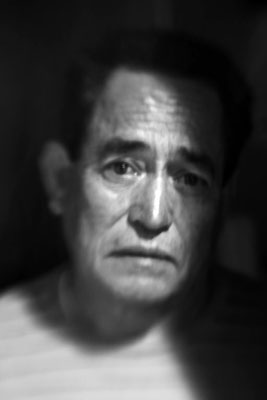All Nonfiction
- Bullying
- Books
- Academic
- Author Interviews
- Celebrity interviews
- College Articles
- College Essays
- Educator of the Year
- Heroes
- Interviews
- Memoir
- Personal Experience
- Sports
- Travel & Culture
All Opinions
- Bullying
- Current Events / Politics
- Discrimination
- Drugs / Alcohol / Smoking
- Entertainment / Celebrities
- Environment
- Love / Relationships
- Movies / Music / TV
- Pop Culture / Trends
- School / College
- Social Issues / Civics
- Spirituality / Religion
- Sports / Hobbies
All Hot Topics
- Bullying
- Community Service
- Environment
- Health
- Letters to the Editor
- Pride & Prejudice
- What Matters
- Back
Summer Guide
- Program Links
- Program Reviews
- Back
College Guide
- College Links
- College Reviews
- College Essays
- College Articles
- Back
Euthanasia - should it be legalized?
As Professor Sean Davison was tucking his 84-year old mother into bed one night, she pleaded, “No, put it [her pillow] on top of my face.”
“Do you really want me to be the person to give you your death wish?”
“Please, I want you to help me die…”
The debate about assisted-suicide, or euthanasia, has been raging on for decades. Although illegal in most parts of the world, a small number of countries have legalized this controversial practice, namely Belgium, the Netherlands and several states in the United States of America.
Euthanasia can be defined as the act of killing a terminally-ill patient out of mercy. There are two types: voluntary, when a fully competent patient makes the decision to end their life; and involuntary, when this decision is made for a patient who is incapable. Euthanasia – which in Greek means “the good death” – is viewed by some as exactly that; an opportunity for a painless transition from suffering to peace.
Sean Davison’s mother was “wracked with a progressive cancer,” her skin was “bruising” and she smelled of “rotting flesh” with a tongue that was “completely decayed.” However, others claim that such anguish can be alleviated by modern medicine without the need for euthanasia. The narcotic drug morphine, for example, blocks the body’s pain receptors and spurs the release of endorphins. Yet, morphine also has a number of possible side-effects, such as nausea, vomiting, constipation, an allergic reaction and even a slow breathing and heart rate. Some patients also build up resistance to morphine, resulting in the drug no longer being effective in easing their pain.
Some view euthanasia as murder. Murder can be defined as an act of killing someone against their will. However, others see euthanasia rather as a form of suicide, which in many countries isn’t illegal. Perhaps the most important issue at hand is the patient's right and desire to die. Any healthy individual would most likely be unable to comprehend the type of anguish a terminal illness can cause. For this reason, Arnold Beisser, an expert on euthanasia, says, "The decision to live or die belongs not to the courts or to doctors, but to the person whose life it is".
One argument is that only God has the right to control whether another lives or dies. However, some dispute this by stating that modern medical procedures which keep people alive already interfere with this, because Mother Nature would not have allowed these people to survive naturally. Annette Coravoa, a Christian mother who wishes to end the lives of her two suffering children, said, “If God had wanted them to live, then the [feeding] tubes wouldn’t be needed.”
Many people claim that if euthanasia were made legal, physicians would abuse their ‘license to kill’. They believe that physicians may choose the quick and easy way out, especially under the pressure of insurance companies who want to minimize costs. However, some believe that it is a physician’s duty to help their patients in any way possible. Doctor Jack Kevorkian, who illegally helped 130 suffering patients die, stated that “a physician is supposed to help patients avoid suffering." This means that, if all treatment fails, the physician should be allowed to assist in avoiding the unnecessary agony via death.
The 1991 Remmelink Report in the Netherlands showed that of the 8 681 euthanasia-related deaths that year, 70% were without the patients consent. In order to prevent the abuse of legal euthanasia, there would have to be universal guidelines for physicians to follow, which would ensure the safety of patients.
I believe that euthanasia is an inherent right that should not be infringed upon. When palliative care is no longer an option and treatment has failed, the personal choice of "the good death" should remain open at all times. For this reason, I believe that euthanasia should be legalized. However, it should only be carried out by accredited physicians once the appropriate safeguards have been followed.

Similar Articles
JOIN THE DISCUSSION
This article has 0 comments.
